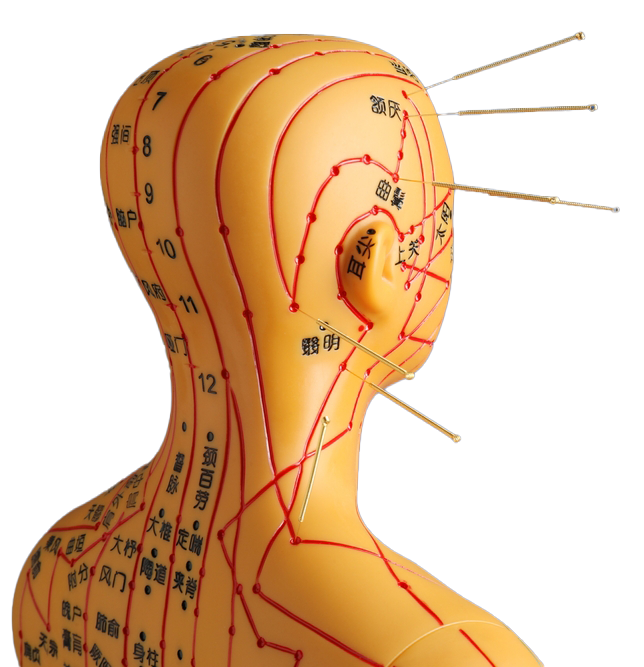- Facet joint Radiofrequency Thermocoagulation (RFT) Treatment
- Radiofrequency Thermocoagulation Dorsal root ganglion (DRG) radiofrequency thermocoagulation (RFT)
- Discitis Procedure
- Sacroiliac Joint Radiofrequency Treatment (Simplicity)
- In-Disc Ozone Therapy
- Nucleoplasty
- Transforaminal Injection (Pinpoint)
- Facet joint block
- Epidural Injection
Healthy eating
- Home
- Pain Prevention
- Healthy eating
Contents
Toggle- Creating an individualised treatment plan
- The role of different specialities (physiotherapist, orthopaedist, psychologist, neurosurgeon)
- Pain treatment during pregnancy
- Treatment of chronic pain in the elderly
- Pain management in children
- Stress management
- Healthy eating
- Ergonomic living arrangements
- Exercise and mobility
- Facet joint Radiofrequency Thermocoagulation (RFT) Treatment
- Radiofrequency Thermocoagulation Dorsal root ganglion (DRG) radiofrequency thermocoagulation (RFT)
- Discitis Procedure
- Sacroiliac Joint Radiofrequency Treatment (Simplicity)
- In-Disc Ozone Therapy
- Nucleoplasty
- Transforaminal Injection (Pinpoint)
- Facet joint block
- Epidural Injection
- Cancer pain
- Permanent Epidural / Spinal Port Application
- Vascular Port (Permanent Vascular Access)
- Trigeminal Nerve RFT
- Blockade of Ganglion Stellatum
- Lumbar Sympathetic Ablation
- Facet joint Radiofrequency Thermocoagulation (RFT) Treatment
- Radiofrequency Thermocoagulation Dorsal root ganglion (DRG) radiofrequency thermocoagulation (RFT)
- Hernia Burning (IDET)
- Discitis Procedure
- Sacroiliac Joint Radiofrequency Treatment (Simplicity)
- Permanent Epidural / Spinal Port - Pump System
- In-Disc Ozone Therapy
- Nucleoplasty
- Peripheral Nerve Block
- Transforaminal Injection (Pinpoint)
- Facet joint block
- Epidural Injection
- Intra-articular Fluid Treatment
- Dorsal root ganglion (DRG) radiofrequency thermocoagulation (RFT)
- Spinal cord stimulation (pain pacemaker)
- Ergonomic living arrangements
- Spinal cord stimulation (pain pacemaker)
- Nucleoplasty
- Radiofrequency ablation
- Herbal solutions
- Dry needle treatment
- Anti-ageing treatments
- Ozone therapy
- Cupping therapy - Cupping
- Mesotherapy
- Prolotherapy
- Acupuncture
- Stem Cell Therapy
- Nerve blockages
- Corticosteroid injections
- Massage and relaxation techniques
- Manual therapy
- Electrotherapy
- Neuropathic pain medications
- Anti-inflammatory drugs
- Muscle relaxants
- Painkillers (paracetamol, ibuprofen, etc.)
Healthy eatingA healthy diet is a dietary pattern created to support energy levels, protect against diseases and improve the overall quality of life by taking all the nutrients the body needs in a balanced way. Healthy eating is critical not only for ideal weight management, but also for the immune system, brain function and long-term health.
Below you will find a detailed guide to healthy eating:
1. Basic Principles of Healthy Nutrition
- Balanced Nutrition
- Carbohydrate, protein, fat, vitamins and minerals should be balanced in your diet.
- No food group should be completely excluded, but portion control should be observed.
- Natural and Unprocessed Foods
- Fresh, natural and, if possible, seasonal foods should be preferred instead of processed foods (ready-to-eat foods, packaged snacks, sugary drinks).
- Adequate and Balanced Calorie Intake
- The amount of calories appropriate for the person's age, gender, physical activity level and metabolic rate should be determined.
- Excessive energy intake can lead to weight gain, while insufficient energy intake can cause fatigue and immune system weakness.
- Portion Control
- Fill your plate with a balanced mix of vegetables, whole grains and protein sources.
- Avoid excessively large portions, eat slowly to allow time for satiety signals.
- Aiming for the Coloured Plate
- A plate full of vegetables and fruit is ideal for meeting different vitamin and mineral needs. Try to have different coloured foods on your plate every day.
2. Food Groups for Healthy Nutrition
A healthy diet includes the consumption of a variety of foods from the basic food groups.
2.1 Carbohydrates
- Sources: Whole grains (brown rice, whole wheat bread, oats), bulgur, quinoa, vegetables, fruits.
- Role: It is the body's main source of energy. However, refined carbohydrates (white bread, sugary foods) should be avoided.
2.2 Proteins
- Sources: Lean meat, fish, chicken, eggs, legumes (lentils, chickpeas), milk and dairy products, tofu, nuts.
- Role: Essential for muscle growth, tissue repair and the immune system. Try to consume a protein source at every meal.
2.3 Oils
- Sources: Healthy fats; olive oil, avocado, walnuts, almonds, fish (salmon, sardines), coconut oil.
- Role: Provides energy, supports hormone production and increases the absorption of some vitamins. Trans fats and excess saturated fats should be avoided.
2.4 Vitamin and Mineral Sources
- Sources: Vegetables, fruits, dairy products, whole grains, seafood.
- Role: Essential for growth, development and proper functioning of the body. Especially calcium (for bone health), iron (for blood production) and vitamin C (for immunity) intake is important.
2.5 Fibre
- Sources: Whole grains, vegetables, fruits, legumes, chia seeds, flax seeds.
- Role: Regulates digestion, supports intestinal health and provides a feeling of satiety for a long time.
2.6 Water
- Role: It is vital for the body to fulfil its basic functions. At least 8-10 glasses of water should be consumed every day. Caffeinated drinks such as coffee and tea do not replace water.
3. Daily Recommendations for Healthy Eating
- Do Not Neglect Breakfast
- Starting the day with a balanced breakfast stabilises blood sugar levels and provides energy. Eggs, whole grain bread, avocado, cheese and fresh vegetables are ideal breakfast options.
- Meal Pattern
- You can keep your blood sugar levels in balance by consuming healthy snacks (fruit, nuts, yoghurt) as well as main meals.
- Reduce Sugar Consumption
- Choose natural sources of sugar (fruit) instead of sugary drinks, sweets and packaged snacks.
- Limit Salt Consumption
- Excessive salt consumption can lead to high blood pressure and heart disease. Try to keep daily salt consumption below 5 grams.
- Prefer Cooking at Home
- Cooking at home allows you to control portions and consume less processed food. You can prepare your meals with healthy fats and natural ingredients.
- Label Reading Habit
- Read the contents of packaged foods carefully. Pay attention to additives, sugar content and fat content.
- Try Different Foods
- Instead of a monotonous diet, diversify your diet by consuming different seasonal vegetables and protein sources.
4. Things to Consider in Healthy Nutrition
- Not Overdoing it
- Even if healthy, too much food can lead to weight gain and an unbalanced diet. Everything should be in moderation.
- Health Orientated Nutrition, Not Weight
- Instead of aiming for rapid weight loss, aim to create a healthy lifestyle in the long term.
- Personalise Diets
- Each individual's age, gender, health status and lifestyle are different. Therefore, organise your nutrition plan according to these factors.
- Attention to Emotional Eating
- Instead of eating in times of stress, sadness or distress, learn to distinguish between emotional hunger and physical hunger.
- Supplement Use
- Do not use nutritional supplements unnecessarily without a doctor's advice. A balanced diet usually fulfils all your nutritional needs.
5. Long-term benefits of a healthy diet
- Disease Prevention
- A healthy diet helps prevent obesity, diabetes, hypertension, heart disease and some types of cancer.
- Strengthening the Immune System
- A balanced diet makes the body more resistant to infections.
- Increased Energy Level
- Adequate consumption of carbohydrates, protein and healthy fats keeps energy levels in balance and keeps you active throughout the day.
- Mental Health and Concentration
- A diet rich in omega-3 fatty acids and vitamins supports brain health, improves concentration and reduces the risk of depression.
- Healthy Skin and Hair
- A diet rich in antioxidants, vitamins and minerals improves skin and hair health.
Summary
A healthy diet is a lifestyle that promotes both physical and mental health by consuming the right foods in the right amounts and in balance. A balanced diet should include natural and varied foods; processed foods, excessive sugar and salt consumption should be avoided. In addition, regular water consumption, portion control and creating an individualised nutrition plan are important. In the long term, a healthy diet not only protects against diseases, but also improves quality of life.
Our treatments
- Home
- Pain Prevention
- Healthy eating





